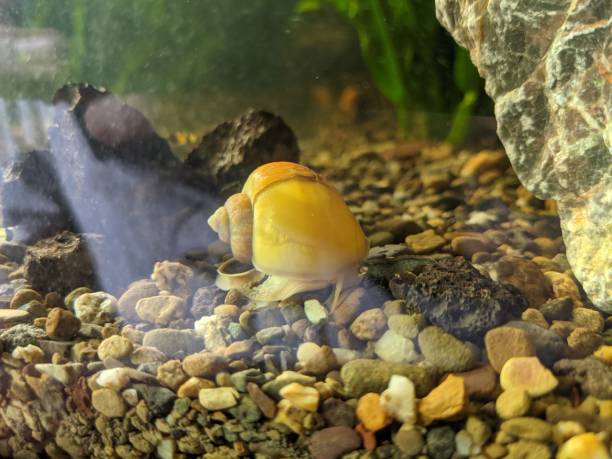The Surprising World of Aquatic Snails: Nature's Tiny Janitors
Dive into the fascinating realm of aquatic snails, the unsung heroes of freshwater ecosystems. These often-overlooked mollusks play a crucial role in maintaining water quality and ecological balance. From their diverse species to their unique adaptations, aquatic snails offer a captivating glimpse into the intricate world beneath the water's surface.

The Diversity of Aquatic Snails
Aquatic snails come in a wide array of shapes, sizes, and colors. From the common pond snail to the exotic ramshorn, these gastropods have adapted to various freshwater environments. Some species, like the Malaysian trumpet snail, burrow into substrate, while others, such as the nerite snail, prefer to graze on surfaces. This diversity allows aquatic snails to occupy different niches within their ecosystems, contributing to the overall health and balance of freshwater habitats.
Ecological Importance
Aquatic snails play a vital role in maintaining water quality and ecosystem balance. As natural algae eaters, they help control algal growth, preventing excessive blooms that can harm other aquatic life. Additionally, many species consume detritus and organic matter, effectively recycling nutrients within the ecosystem. This cleaning behavior has earned them the nickname nature’s tiny janitors, as they tirelessly work to keep their aquatic homes clean and healthy.
Adaptations for Underwater Living
These fascinating creatures have developed remarkable adaptations to thrive in aquatic environments. Many species possess a specialized breathing organ called a gill, allowing them to extract oxygen from water. Some aquatic snails have even evolved a lung-like organ, enabling them to breathe both in and out of water. Their unique locomotion, powered by a muscular foot, allows them to glide effortlessly across various surfaces, including plants, rocks, and even the water’s surface tension.
The Role of Aquatic Snails in Aquariums
Aquatic snails have gained popularity among aquarium enthusiasts for their algae-eating capabilities and unique appearances. Species like the nerite snail and mystery snail are prized for their ability to keep aquarium glass and decorations clean. However, some species, such as the Malaysian trumpet snail, can reproduce rapidly and become a nuisance if not managed properly. The average price for aquarium-suitable snails ranges from $1 to $10 per snail, depending on the species and availability.
Conservation Concerns and Future Outlook
While many aquatic snail species are abundant, some face threats due to habitat loss, pollution, and invasive species. Conservation efforts are underway to protect vulnerable species and their habitats. Research into the ecological importance of aquatic snails is ongoing, with scientists exploring their potential as bioindicators of water quality and ecosystem health. As we continue to understand the vital role these tiny creatures play in freshwater ecosystems, it becomes clear that protecting aquatic snails is essential for maintaining the delicate balance of our planet’s water bodies.






